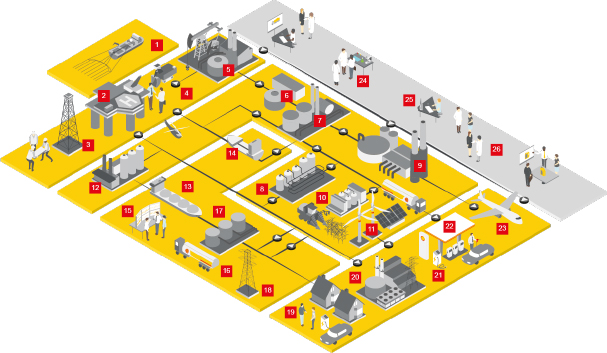Indonesia
358 Employees
-
Third-party revenues
$450,742,992
-
Related-party revenues
$124,101,355
-
Total revenues
$574,844,347
-
Profit before tax
$(578,968,295)
-
Tax paid
$(25,307,646)
-
Tax accrued
$7,405,284
-
Tangible assets
$1,055,256,581
-
Stated capital
$927,321,619
-
Accumulated earnings
$(684,099,986)
Main Business Activities
- Upstream and Integrated Gas
- Downstream
- Trading and Supply
- Other support activities
Shell’s presence in Indonesia goes back more than 100 years to when the discovery of crude oil in Sumatra led to the formation of Royal Dutch Petroleum Company.
Shell has upstream and downstream activities in Indonesia. Shell’s downstream activities include the marketing of fuels, lubricants and bitumen. In its upstream activities, Shell is a partner of Inpex, which operates the Masela production-sharing contract, including the Abadi gas fields. Shell has a 35% interest in the project.
Country Financial Analysis
The statutory corporate income tax rate in Indonesia is 22%.
In 2020, revenues came mostly from the downstream business. Upstream activities are in the exploration phase and therefore did not make a profit.
Shell in Indonesia reported a loss for 2020 as a result of an impairment in the value of Shell’s interest in the Masela production-sharing contract.
The tax credit figure is the refund of corporate income tax for 2017-2018 received in 2020. The tax accrued figure represents a prepayment of corporate income tax for 2020. However, as taxable income will be offset by losses, any prepayment is refundable from the tax authority.








